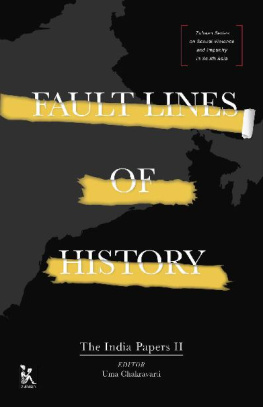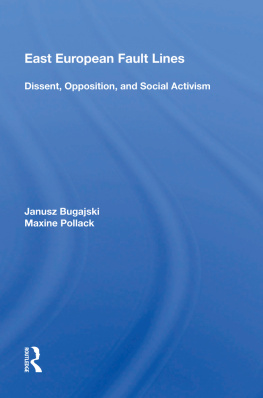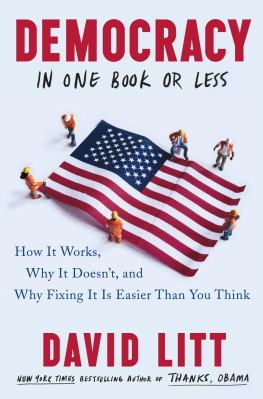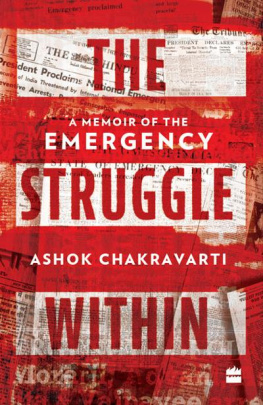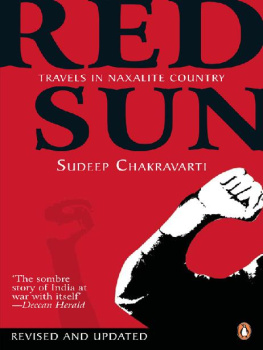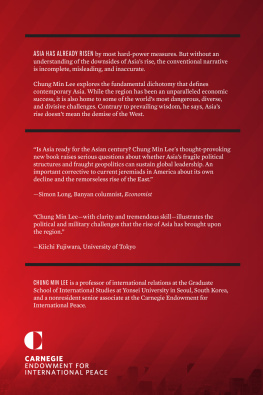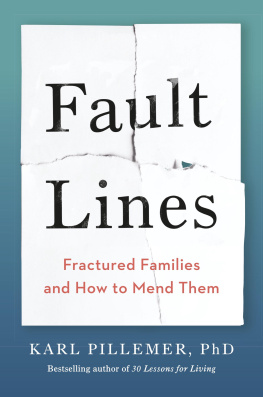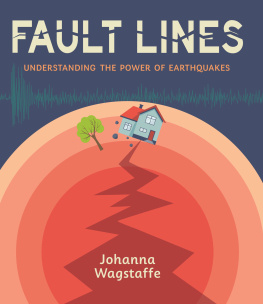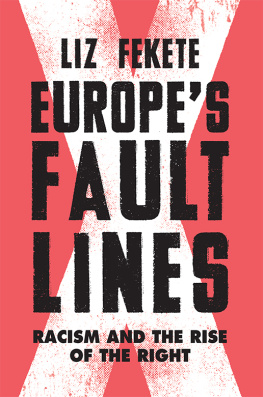Uma Chakravarti - Fault Lines of History: The India Papers II
Here you can read online Uma Chakravarti - Fault Lines of History: The India Papers II full text of the book (entire story) in english for free. Download pdf and epub, get meaning, cover and reviews about this ebook. year: 2017, publisher: Zubaan, genre: Politics. Description of the work, (preface) as well as reviews are available. Best literature library LitArk.com created for fans of good reading and offers a wide selection of genres:
Romance novel
Science fiction
Adventure
Detective
Science
History
Home and family
Prose
Art
Politics
Computer
Non-fiction
Religion
Business
Children
Humor
Choose a favorite category and find really read worthwhile books. Enjoy immersion in the world of imagination, feel the emotions of the characters or learn something new for yourself, make an fascinating discovery.
- Book:Fault Lines of History: The India Papers II
- Author:
- Publisher:Zubaan
- Genre:
- Year:2017
- Rating:5 / 5
- Favourites:Add to favourites
- Your mark:
- 100
- 1
- 2
- 3
- 4
- 5
Fault Lines of History: The India Papers II: summary, description and annotation
We offer to read an annotation, description, summary or preface (depends on what the author of the book "Fault Lines of History: The India Papers II" wrote himself). If you haven't found the necessary information about the book — write in the comments, we will try to find it.
Fault Lines of History: The India Papers II — read online for free the complete book (whole text) full work
Below is the text of the book, divided by pages. System saving the place of the last page read, allows you to conveniently read the book "Fault Lines of History: The India Papers II" online for free, without having to search again every time where you left off. Put a bookmark, and you can go to the page where you finished reading at any time.
Font size:
Interval:
Bookmark:
The Sexual Violence and Impunity in South Asia research project (coordinated by Zubaan and supported by the International Development Research Centre) brings together, for the first time in the region, a vast body of knowledge on this important - yet silenced - subject. Six country volumes (one each on Bangladesh, Nepal, Pakistan, Sri Lanka, and two on India) comprising over fifty research papers and two book-length studies detail the histories of sexual violence and look at the systemic, institutional, societal, individual and community structures that work together to perpetuate impunity for perpetrators.
This volume, the second on India, addresses the question of state impunity, suggesting that on the issue of the violation of human and civil rights, and particularly in relation to the question of sexual violence, the state has been an active and collusive partner in creating states of exception, where its own laws can be suspended and the rights of its citizens violated. Drawing on patterns of sexual violence in Kashmir, the Northeast of India, Chhattisgarh, Haryana and Rajasthan, the essays together focus on the long histories of militarization and regions of conflict, as well as the 'normalized' histories of caste violence which are rendered invisible because it is convenient to pretend they do not exist.
Even as the writers note how heavily the odds are stacked against the victims and survivors of sexual violence, they turn their attention to recent histories of popular protest that have enabled speech. They stress that while this is both crucial and important, it is also necessary to note the absence of sufficient attention to the range of locations where sexual violence is endemic and often ignored. Resistance, speech, the breaking of silence, the surfacing of memory: these, as the writers powerfully argue, are the new weapons in the fight to destroy impunity and hold accountable the perpetrators of sexual violence.
Uma Chakravarti is a feminist historian who has taught at Miranda House College for Women, Delhi University. She writes on Buddhism, early Indian history, the nineteenth century and on contemporary issues. Among her many publications are: Social Dimensions of Early Buddhism (1987), Rewriting History: The Life and Times of Pandita Ramabai (1998, Zubaan) Gendering Caste through a Feminist Lens (2002) and many edited volumes. She is closely involved with the women's movement as well as the movement for democratic rights in India, and has been part of many fact-finding teams to investigate human rights violations, communal violence and state repression.


Zubaan
128 B Shahpur Jat, 1st floor
NEW DELHI 110 049
Email:
Website: www.zubaanbooks.com
First published by Zubaan 2016
Copyright Zubaan 2016
All rights reserved
This project was undertaken with financial support provided by the International Development Research Centre, Canada
10 9 8 7 6 5 4 3 2 1
eBook ISBN: 9789385932311
Print source ISBN: 9789385932083
This eBook is DRM-free.
Zubaan is an independent feminist publishing house based in New Delhi with a strong academic and general list. It was set up as an imprint of Indias first feminist publishing house, Kali for Women, and carries forward Kalis tradition of publishing world quality books to high editorial and production standards. Zubaan means tongue, voice, language, speech in Hindustani. Zubaan publishes in the areas of the humanities, social sciences, as well as in fiction, general non-fiction, and books for children and young adults under its Young Zubaan imprint.
Printed and bound at Raj Press, R-3 Inderpuri, New Delhi 110 012
Hello Reader!
This is just a note to let you know that all Zubaan ebooks are completely free of digital rights management (that is, DRM-free), so that you can read them on any of your devices and download them multiple times. We believe that this makes for a more trouble-free and pleasurable reading experience. To be fair to our authors and to enable us to continue publishing and disseminating their work, we appeal to you to buy copies of this ebook rather than share or give it away free. Thank you for your support and cooperation. And happy reading!
Urvashi Butalia, Laxmi Murthy and Navsharan Singh
Uzma Falak
Uma Chakravarti
Roshmi Goswami
Sanjay Barbora
Dolly Kikon
Sahba Husain
Gazala Peer
Guneet Ahuja and Parijata Bhardwaj
Jayshree P. Mangubhai
Pratiksha Baxi
Urvashi Butalia, Laxmi Murthy and Navsharan Singh
The Sexual Violence and Impunity project (SVI) is a three-year research project, supported by the International Development Research Centre (IDRC), Canada, and coordinated by Zubaan. Led by a group of nine advisors from five countries (Bangladesh, India, Nepal, Pakistan, Sri Lanka), and supported by groups and individuals on the ground, the SVI project started with the objectives of developing and deepening understanding on sexual violence and impunity in South Asia through workshops, discussions, interviews and commissioned research papers on the prevalence of sexual violence, and the structures that provide impunity to perpetrators in all five countries.
The project began with some key questions and concerns. We noted that recent histories and contemporary political developments in South Asia had shown an exponential increase in sexual violence, particularly mass violence. And yet, even as such violence had increased across the region, so had the ever-deepening silence around it.
Why, for example, had the end of 25 years of violent conflict in Sri Lanka in May 2009 not resulted in an open and frank discussion about sexual violence as a weapon of war? Why had the International Crimes Tribunal (ICT) of Bangladesh, set up in 2009 to investigate and prosecute suspects for the genocide committed in 1971 by the Pakistan army and their local collaborators, paid such little attention to the question of mass rape, despite it being widely acknowledged that it had happened and many women having spoken out about it? Why did discussions on Kashmir in India or Swat in Pakistan, simply ignore the question of sexual violence? Why was caste violence, violence against sex workers and men and transgender persons barely spoken about?
Nor was silence the only issue here. Crucial to maintaining the silence wasand isthe active collusion of states in providing impunity to perpetrators, sometimes under the guise of protective laws and special powers to the armed forces, at others under the guise of nationalism. So heavily were the odds stacked against women that, until recently, very few had dared to speak out. Backed by culture, and strengthened by the state, and often with the active collusion of non-state actors, impunity then, remained largely unchallenged.
We asked ourselves if these conditions were specific to the South Asian region. Elsewhere in many parts of the world, we noted, rape was increasingly being discussed and accepted, not only as a weapon of war, but also as a crime against humanity and as an instrument of genocide. The 1998 Akeyesu judgment by the International Criminal Tribunal for Rwanda (ICTR) provided a clear definition of rape and delineated its elements as a crime against humanity and as an instrument of genocide. In the International Criminal Tribunal for the former Yugoslavia (ICTY) jurisprudence pioneered the approach that used acts of rape and other forms of sexual violence to include elements of other international crimes such as torture, enslavement, and persecution, which previously had not been litigated in the context of gender violence.
Font size:
Interval:
Bookmark:
Similar books «Fault Lines of History: The India Papers II»
Look at similar books to Fault Lines of History: The India Papers II. We have selected literature similar in name and meaning in the hope of providing readers with more options to find new, interesting, not yet read works.
Discussion, reviews of the book Fault Lines of History: The India Papers II and just readers' own opinions. Leave your comments, write what you think about the work, its meaning or the main characters. Specify what exactly you liked and what you didn't like, and why you think so.

